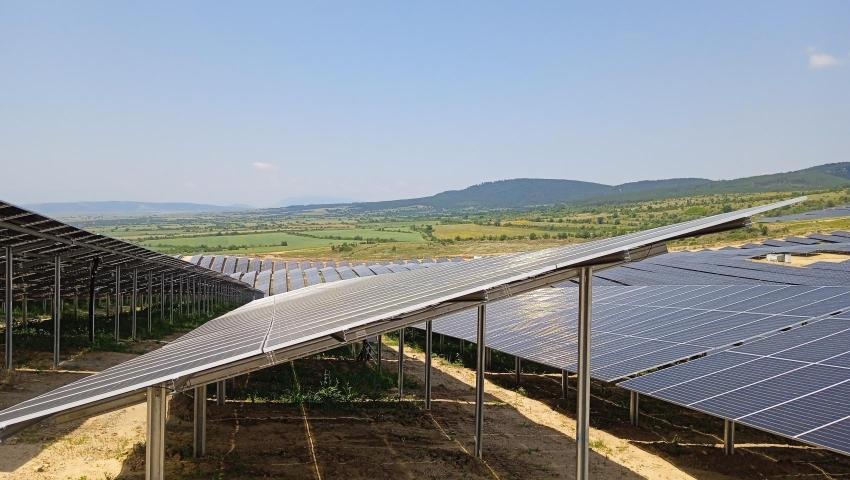Contracts concluded for compensating RES energy producers with a premium will be considered amended after the entry into force of new legal texts

Source: 3e-news.net
With the entry into force of the amendments to the Law on Energy from Renewable Energy Sources (REV), the concluded contracts for compensating RES energy producers with a premium are considered amended. Premium will be paid under other conditions. This was ultimately decided by the MPs from the Energy Commission of the National Assembly upon the adoption of the second reading of the amendments to the said law (LERES). The case study on this text necessitated a temporary break of about 20 minutes, during which the proposed text of the petitioner was accepted in the person of the Council of Ministers. Before that, the chairman of the energy commission, Dulan Dobrev, proposed his own text to solve the problem - through the so-called "contracts for difference", but it proved to be problematic for this case, which also concerned possible excess revenue.
During the debate, the chairman of the Commission for Energy and Water Regulation (EWRC), Ivan Ivanov, reminded that since 2018, the mechanism for compensating costs for RES energy producers is with premiums. According to him, in two of the last five years, prices on the stock exchange were 7% lower, but in the rest of the years prices were higher, which led to higher incomes for renewable energy producers. In this regard, he expressed doubts about changing the mechanism of premiums with contracts for differences. Accordingly, an example was also given with the negative prices that are sometimes observed in the "day-ahead" segment.
The Ministry of Energy expressed confidence that from now on there will be no overcompensation with the texts formed in this way. However, the Chairman of the Commission on Energy, Delyan Dobrev, proposed that the Ministry of Energy and the "Security of the Energy System" Fund, together with EWRC, analyze the problem of overtaxed revenues.
Previously, Miglena Rusinova expressed the opinion that the proposed text of the contract for differences is retroactive, in violation of the European directive and "will blow up the sector".
The adoption of the changes to the Law on Energy from Renewable Sources is directly related to the receipt of funds under the Recovery and Sustainability Plan (RSP). The changes are to be adopted in the plenary hall by the end of the week. According to the Chairman of the Energy Commission, Delyan Dobrev, the texts must be finally adopted at the meeting of the National Assembly on Friday.
Despite the criticism by experts of the so-called "zoning", however, the amendment in the LERES introduces it by providing for the development by the relevant ministers of a Plan for determining zones for the construction of sites for the production of energy from RES. For them, an accelerated process of issuing the necessary administrative permits is planned until they are put into operation, including connection to the power transmission or power distribution network. Priority is given to wind power. The bill envisages the establishment of administrative service centers for municipalities to support the provision of administrative services. In the process of debate in the energy committee, no question was raised about the capacity of the municipalities or their composition and the necessary qualifications.
With regard to the proposal submitted between the first and second reading that the producers of electricity from renewable energy sources pay a guarantee of BGN 50,000 in favor of the operator of the respective electricity network for each megawatt of installed capacity for the future energy site, the deputies voted "yes". Provided, however, that this will not apply to small RES producing energy for own needs.
The new amendments to the LERES envisage simplified procedures for joining energy facilities for the production of electricity from RES, shorter deadlines for issuing an opinion on joining, eliminating the need to conclude a preliminary contract, reducing the terms of the joining contracts.
At the same time, requirements are being introduced for the guarantees of origin of energy from RES in relation to European standards. The possibility of issuing guarantees of origin for gas and green hydrogen from RES is regulated. New generation biofuel opportunities are envisaged. More sustainability criteria have been proposed for reducing greenhouse gas emissions for biofuels and biomass liquid fuels. Criteria are introduced for gaseous and solid biomass fuels.
In view of the reforms under RSP, amendments and additions have been proposed to the Law on Energy Efficiency, to the Law on Environmental Protection, to the Law on the Protection of Agricultural Lands.
From the point of view of the recommendations of the European Commission regarding state aid, support through the purchase of electricity from renewable sources at preferential prices and long-term contracts for new sites with installed power up to 30 kilowatts, which are built on roof and facade structures of buildings connected to the electricity distribution network and on real estates attached to them in urbanized areas. Changes have also been proposed to enable control and taking the necessary actions to fulfill the requirements for providing state aid to the recipients under the existing schemes.
The issue of overrun funds from RES producers, if any, still remains among the controversial points.
The opinion of the MoEW on the law on water and geothermal energy, which was not accepted by the energy commission, remains in question.
